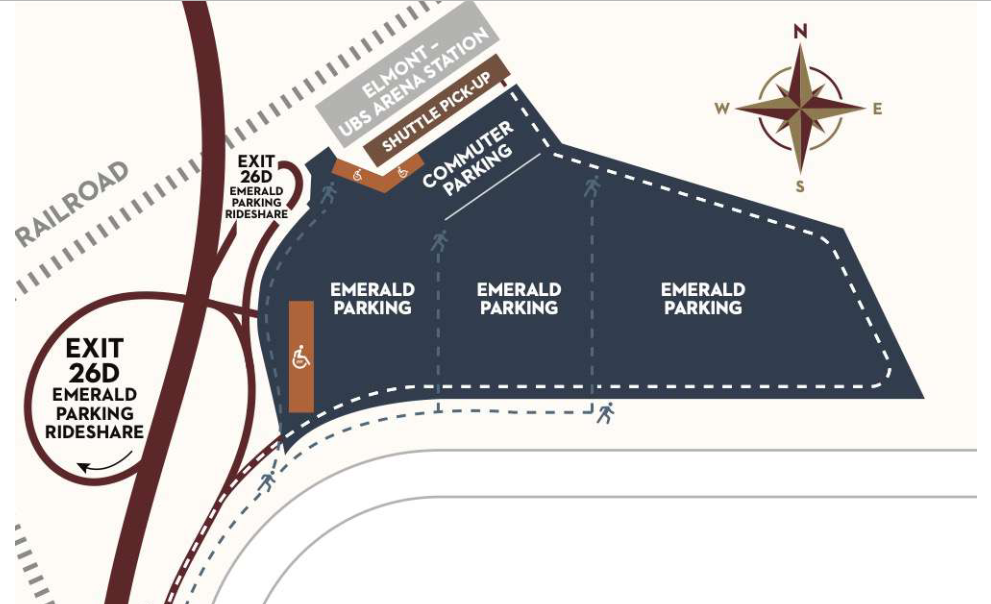Get Your UBS Parking Pass Now! - Easy Steps
Is securing a coveted ubs parking pass in today's bustling urban environment a daily battle of wills and a source of constant frustration? The reality is that obtaining and navigating the complexities of these parking passes has become a significant challenge for individuals, businesses, and institutions alike, impacting daily commutes, operational efficiency, and even the bottom line.
For those who regularly travel to or work in areas where UBS operates, the acquisition and management of a parking pass is far more than a simple formality; it's a pivotal element in their daily lives. It dictates punctuality, influences stress levels, and can directly impact the overall work experience. The demand for these parking passes often outstrips the available supply, particularly in high-density locations, leading to a range of difficulties, from lengthy waiting lists to the constant fear of non-compliance and associated fines. The logistical implications are significant, with individuals often compelled to search for alternative parking solutions, navigating public transportation, or even relocating their vehicles, all of which consume valuable time and resources.
The challenges associated with obtaining and using a UBS parking pass extend beyond the individual. Businesses and institutions operating in areas affected by parking restrictions face considerable operational complexities. Employee parking, client access, and the management of company vehicles become intricate tasks. Ensuring sufficient parking availability and efficient pass allocation demands considerable administrative effort and expense. Furthermore, inadequate parking arrangements can directly impact business operations. Clients may be deterred by parking difficulties, employees may arrive late for important meetings, and deliveries could be delayed, all contributing to decreased productivity and potential revenue loss. This multifaceted impact underscores the importance of understanding and effectively managing the intricacies of the UBS parking pass system.
Understanding the landscape surrounding the UBS parking pass necessitates a deep dive into its operation, regulations, and potential workarounds. The specific requirements for obtaining a pass differ based on factors like location, employee status, and the type of vehicle. Application processes often involve providing detailed vehicle information, proof of employment or association, and payment of fees. Once the pass is obtained, it must be displayed in a conspicuous manner and adhered to meticulously. Violation of the parking regulations can result in hefty fines, vehicle towing, and even the revocation of parking privileges. Navigating these complexities requires a keen awareness of the established rules, frequent updates, and diligent adherence to the regulations. In addition, knowledge of available alternatives, such as public transportation options, nearby parking garages, and the potential for shared parking arrangements, allows for a more flexible and adaptable approach to managing the demands of UBS parking.
The pursuit of a UBS parking pass has intensified the pressure to find practical solutions. One promising approach is a thorough understanding of the specific requirements of the parking system. The parking regulations, fee structures, and application processes vary by location, so it's crucial to be fully informed. Employees and regular visitors may want to register on the parking management portal. Another vital component is staying informed about parking availability. Staying updated on parking occupancy rates, peak times, and any special events that might impact availability is crucial. Some organizations actively explore alternative parking options. These include utilizing nearby parking garages, participating in shared parking agreements, or investigating the use of public transportation. Finally, fostering a culture of compliance is key. Ensuring that all members of the organization are aware of the parking rules and regulations can significantly reduce the potential for violations and associated penalties. These are all measures that will contribute to a smoother experience when trying to obtain and utilize a UBS parking pass.
The development of technological solutions has also played a major role in the evolution of parking management. Digital parking systems, mobile applications, and automated license plate recognition (ALPR) technology are helping to streamline the process of managing and monitoring parking. These technologies enable real-time information about parking availability, simplifying the process of searching for parking spaces, reducing congestion, and improving overall parking efficiency. For example, digital parking permits are often used to replace physical passes, which allows for easier pass management, real-time updates, and reduced administrative overhead. Smart parking systems, equipped with sensors, can detect vacant parking spots and guide drivers to the available spaces. This helps cut down on the time that drivers spend searching for a parking space and minimizing traffic congestion.
For individuals seeking to navigate the complexities of the UBS parking pass, a strategic approach and well-informed awareness are crucial. Researching the particular UBS location and understanding the precise parking regulations is the initial step. This involves reviewing the rules, fee structures, and any other special requirements relevant to that location. Another key component is to explore all available parking options, including both on-site and off-site parking possibilities. Being proactive about applying for the parking pass promptly, as soon as it becomes available, is very important. It also is imperative to keep up with any updates or changes to the parking rules. Parking regulations may be subject to change and staying informed ensures compliance and reduces the likelihood of incurring penalties. In conclusion, a blend of diligence, research, and proactive awareness is necessary for an effective approach to the process of procuring and using a UBS parking pass.
For businesses, efficient UBS parking management is essential for optimizing operations and ensuring the smooth flow of activities. Implementing a parking management system, if the business isn't already doing so, can automate tasks, monitor parking occupancy, and manage pass allocation, thereby saving time and resources. Communicating parking regulations clearly and concisely to all employees is also key to ensuring compliance. Providing employees with simple guidelines, instructions, and regular updates on parking policies can greatly reduce the likelihood of violations. Also, businesses should explore available parking options to cater to employee needs, as well as client visits, and company vehicles. Offering options that may include designated parking spots, alternative parking arrangements, or incentives to use public transportation helps meet the diverse requirements of different business units and staff members. In addition, regularly evaluating and adjusting parking strategies to match the evolving needs of the business is vital. A proactive approach that considers changes in business activities, employee numbers, and local parking conditions can help keep operations running smoothly and maintain a high level of parking availability.
In addition to the practical aspects, the management of the UBS parking pass also presents several potential ethical considerations. The allocation of parking spaces often comes down to issues of fairness and equity, specifically in circumstances where demand surpasses supply. Employers need to have a clear and transparent procedure for assigning parking passes, particularly if the number of passes is limited. Favoritism or arbitrary decision-making can create resentment among employees and could affect morale. Secondly, respecting the environment is also a crucial consideration. By encouraging the use of public transport, offering incentives for carpooling, and advocating for electric vehicle charging stations, businesses and individuals can minimize their environmental impact and improve sustainability. Finally, ensuring data privacy and security is crucial. With the increasing usage of digital parking systems and ALPR technology, it is imperative to protect sensitive user data from unauthorized access and ensure that personal data is handled responsibly and in accordance with data protection regulations. An approach guided by ethical considerations helps create a transparent and equitable parking system that benefits the entire organization and fosters a positive work environment.
The future of UBS parking appears to be heading toward enhanced efficiency, improved accessibility, and increased sustainability. Technological developments are likely to play an even larger role in simplifying parking management processes. Innovations such as advanced sensor networks, sophisticated data analytics, and artificial intelligence could offer dynamic parking solutions. Smart parking systems that can anticipate parking demand, adjust pricing, and direct drivers to available spots are examples of this. The focus will also shift towards more environmentally sustainable approaches, promoting the use of electric vehicles and sustainable transportation options such as cycling and public transport. Moreover, the move towards greater user convenience and accessibility will likely see enhanced mobile parking apps, contactless payment options, and real-time parking availability information to provide an improved user experience. By taking advantage of these advancements, UBS and other organizations can create a more efficient, user-friendly, and sustainable parking environment in the years to come.
In conclusion, navigating the intricacies of the UBS parking pass presents a complex set of challenges for individuals, businesses, and institutions. However, by adopting a strategic, well-informed, and proactive approach, these obstacles can be overcome. Understanding the specific requirements, exploring various parking options, using technology effectively, and fostering a culture of compliance are crucial. By focusing on efficient management, ethical considerations, and a commitment to sustainability, stakeholders can effectively navigate the challenges of the UBS parking pass and make the process more manageable and less stressful. The continuous evolution of parking solutions promises a future where parking management becomes more streamlined, accessible, and sustainable, making it a crucial aspect to be considered for those who interact with UBS locations and their surroundings.

![UBS Arena Parking Lots, Rates, and Tips [Complete Guide]](https://paper-attachments.dropbox.com/s_740235FCD145B959C226D7D546464DC01DEFC4DC84C3D6B933970A9D6735A75C_1638299221351_Screenshot+2021-11-30+200652.jpg)

